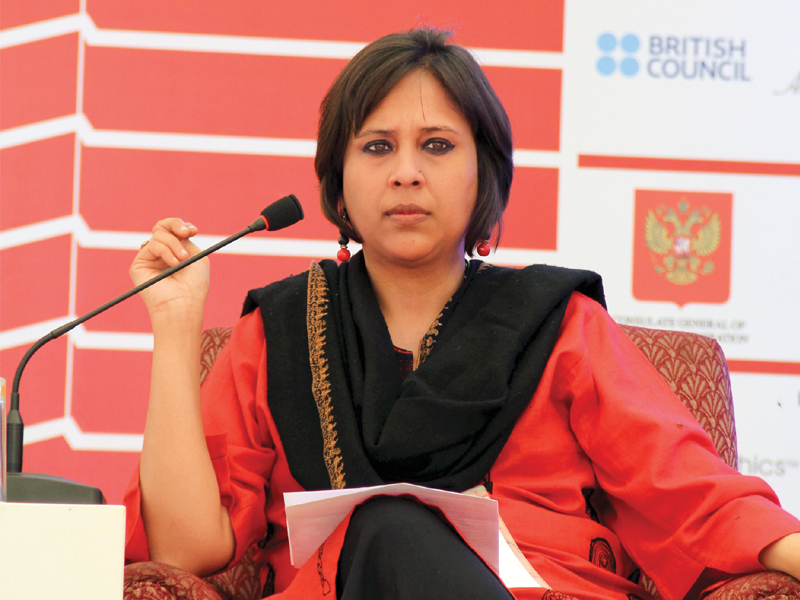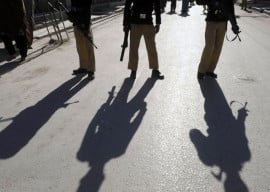
The distinguished panellists at the Karachi Literature Festival’s session on dynastic politics in South Asia may have provided solutions to limit what is largely seen as an anti-democratic tradition, but eliciting an explicit condemnation from them proved to be quite a task for powerhouse journalist Najam Sethi.
Sethi was moderating the discussion on the last day of the festival Sunday. And the panel consisted of British author Victoria Schofield, former foreign secretary Najmuddin Shaikh and Indian journalist Barkha Dutt.
Dutt, who is familiar with the trend coming from a country which has produced the only grandfather-daughter-grandson prime ministers, showered the crowd with some rather disconcerting statistics that revealed some of the undemocratic forces at play in the biggest democracy in the world.
The Indian journalist spoke for the need of intra-party elections to end the controlled continuity in rulers through family lineage.

On the other hand, Schofield highlighted how dynasties in politics weren’t just a third world phenomena. The author, known for close ties to the Bhutto family, illustrated how politics in the United States, whose founding fathers absolutely rejected the idea of power flowing through blood, had become another type of family business.
Schofield named the Kennedy and Bush dynasties to illustrate her point, but didn’t go so far as to say whether the inherent nature of such a practice was anti-democratic. The author did, however, emphasise that high literacy rates in Europe, including the United Kingdom had helped the voter make better, informed decisions about candidates running for election.
Giving a peek into Benazir Bhutto’s life, Schofield told the audience that even though the former prime minister wanted to work in service of the country, she had no aspirations to enter politics before the hanging of her father, Zulfikar Ali Bhutto. She felt that the environment of “assassination” needed to end before any decline was seen on the dynasty front in Pakistani politics.
Dutt shared a similar story about Priyanka Gandhi, who told the Indian journalist that she had imagined her mother, Sonia Gandhi, spending her later years as a gardener until her father, Rajiv Gandhi, was assassinated.

Former diplomat Najmuddin Shaikh was most apparent in his lack of disdain for dynasty in politics. Shaikh told the crowd that children were generally inclined to follow in the footsteps of their parents. He explained how his own siblings, a startling eleven, demonstrated his point - seven of them ended up being doctors like his father.
The panellists emphasised that even though a family name could give an individual undeserved access and higher chances of success in elections, it could only get you so far. They explained how Benazir managed to carve out her own space in politics, distinct from her father’s legacy. But the formula doesn’t always add up as was seen in the case of Fatima Ali Jinnah, who failed in her bid to contest the elections in 1965 against Ayub Khan.
Ironically, the event was graced with the presence of a man who had the power to put some of the panellists’ ideas to work. Chief Election Commissioner Justice (retired) Fakhrudin G Ebrahim walked into the event midway through the session, and brought with him a sense of urgency to address the stranglehold of a few families on the entire nation’s politics.
Published in The Express Tribune, February 18th, 2013.




1729137363-0/Liam-Payne-fans-(1)1729137363-0-165x106.webp)












COMMENTS
Comments are moderated and generally will be posted if they are on-topic and not abusive.
For more information, please see our Comments FAQ